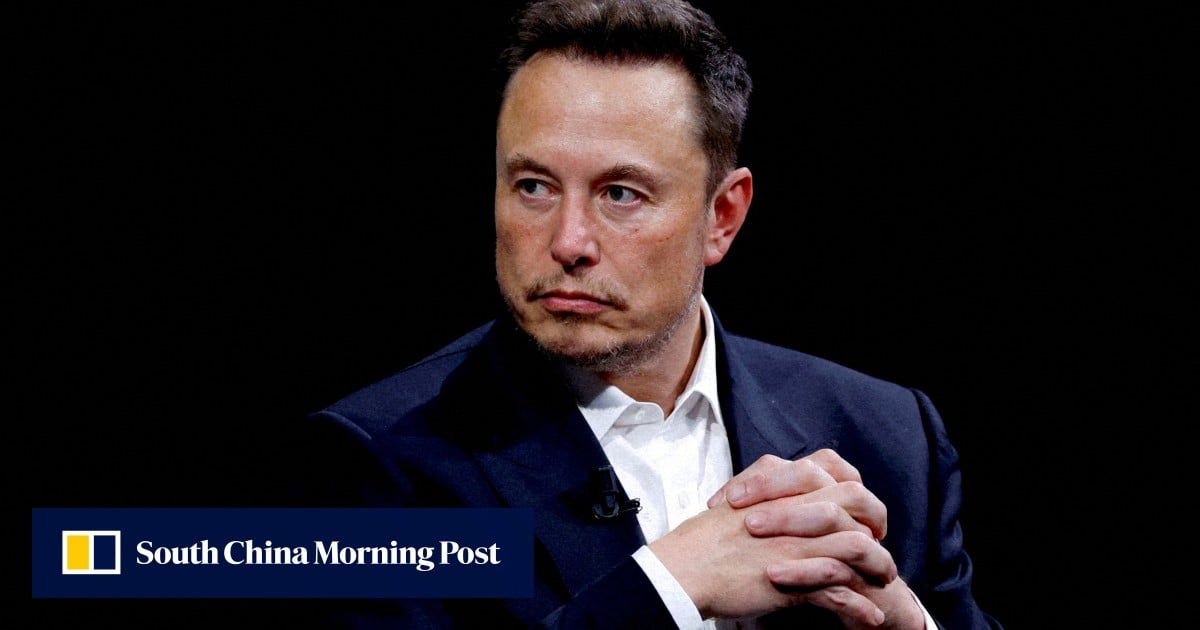


Musk is expected to meet senior Chinese officials at the State Council and “old friends” in Beijing, according to a source familiar with the arrangement.
The SpaceX and Tesla chief travelled to China at the invitation of the China Council for the Promotion of International Trade, meeting with CCPIT president Ren Hongbin to discuss further cooperation with the country, according to Chinese state-run broadcaster CTGN.
Tesla’s India electric vehicle plans on track despite Musk postponing visit
The Austin, Texas-based Tesla has faced fierce competition from Chinese EV makers in the past few years. It has cut the prices of its Shanghai-made vehicles by up to 6 per cent to maintain its leading position in China’s premium EV segment.
China has seen increased adoption of advanced driver-assistance systems and higher levels of autonomous driving functions in mass-produced cars, and Musk said Tesla’s autopilot and supervised full self-driving (FSD) options could soon be provided to its Chinese customers, when he was asked about it on X, the social-media platform formerly known as Twitter, by a Chinese Tesla owner.
Grace Tao, Tesla’s vice-president of external relations in China, wrote a commentary piece in China official newspaper People’s Daily on Friday, saying that autonomous driving is a key growth driver for the country’s new energy vehicle sector, arguing that the technology will hatch new business models such as robotaxis, a vision that Musk has embraced.
Musk’s latest visit to China coincides with the 2024 Beijing Auto Show, which kicked off on Thursday and runs through Saturday. The event has this year attracted more than 1,500 exhibitors, with the biggest names showing off their latest EVs. Tesla does not have a booth at the show and last attended in 2021, according to a Reuters’ report.
Tesla to launch new models ahead of planned timeline, shares jump
During that visit Musk also met with Chinese vice-premier Ding Xuexiang and China’s commerce and industry ministers. The trip was warmly received by the Chinese public, with social-media posts focusing on the Chinese food Musk ate, and some referring to him as a “pioneer” and “brother Ma”.
Chinese EV makers have tried to lure consumers with improved assist-driving functions, such as city and highway autopilot navigation and smart parking. China is expected to be the biggest connected car market, followed by the US, India, Japan, and Germany, with electrification, autonomous and advanced infotainment capabilities being the major drivers for growth of the segment, according to a report from research firm Counterpoint.
However, driverless vehicles are still more of a dream rather than reality in China, where most high level self-driving robotaxis are only allowed to operate in designated suburban areas where traffic conditions are much less complex than in cities.
Autonomous car companies have been struggling to eke out a profit in China due to heavy operating costs and low revenues from maintaining large robotaxi fleets. Baidu, which has robotaxi fleets in several cities, said its self-driving unit will focus on generating revenue and profits after burning cash for years. Smaller players such as WeRide and Pony AI have joined bigger carmakers to try and monetise services as they continue to operate robotaxis at a loss.